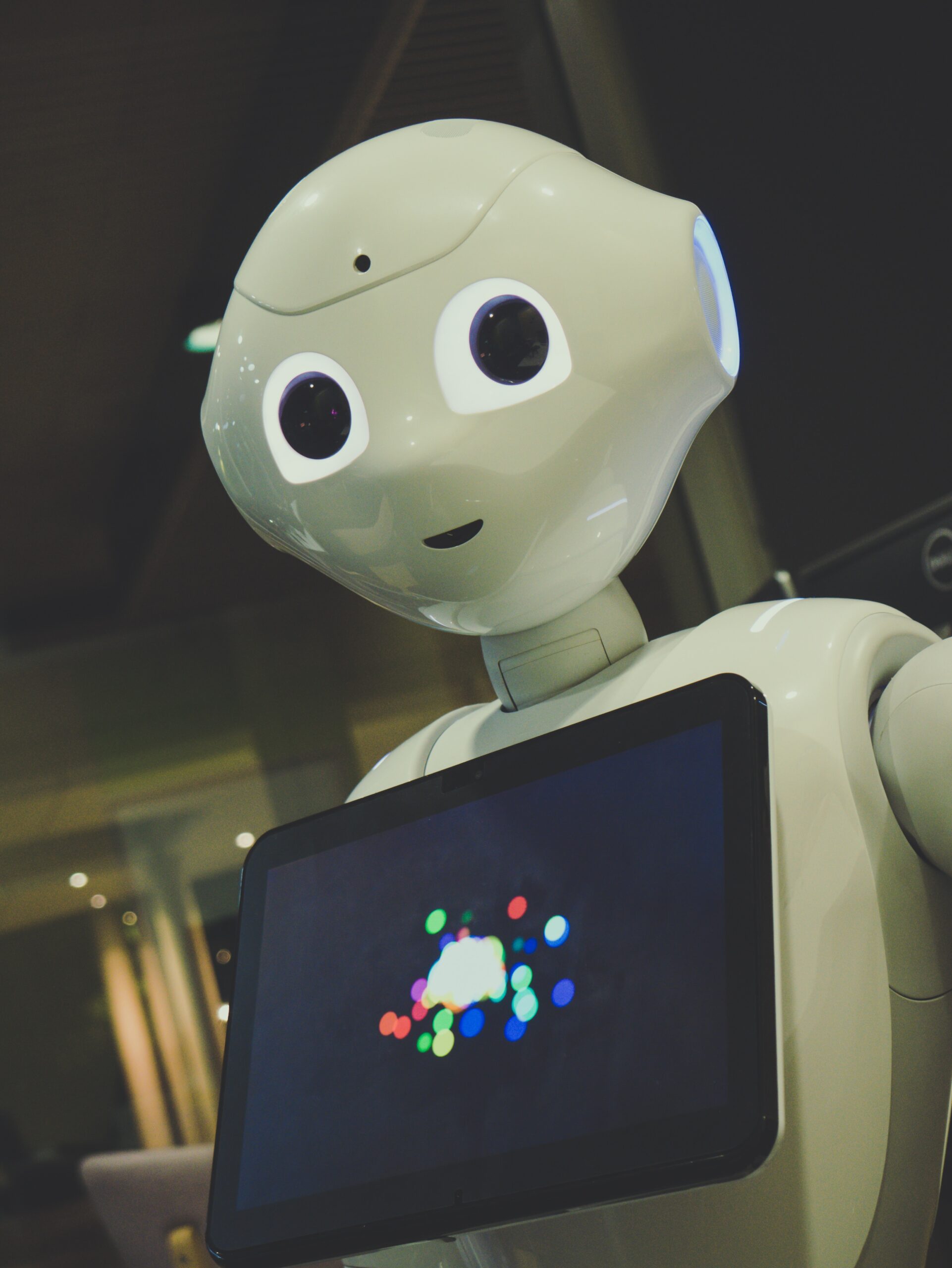Artificial Intelligence (AI) is transforming many industries and redefining the work landscape. But what will be the impact of AI on the future job market? Will it take over our jobs or will it make way for new opportunities? The concept of machines taking over our jobs is not a new thing and it’s been happening since the first industrial revolution and machine manufacturing.
Understanding AI: The Basics
At its core, Artificial Intelligence seeks to train computers to think and learn like human beings, enabling them to perform tasks that usually require human intelligence. Through the analysis of large data sets, computers recognise patterns, make predictions, and take decisions based on the information it is given. The likes of Siri and Alexa illustrate AI’s practical application as voice assistants, responding to our questions by providing useful answers.
AI Across Industries
The integration of AI tools into job roles is expanding at an extraordinary pace, impacting a variety of industries. The implications of AI are immense and promising and some examples of AI’s impact on key industries include the following:
- Medical and Research industries: AI can analyse huge amounts of human data sets to identify trends and aid in early disease detection and diagnosis.
- Finance industries: AI can perform stock market trading, fraud detection, and even offer financial advice.
- Automotive industry: AI algorithms can guide self-driving cars, pushing the boundaries of future transportation.
- AI can perform language translation, video editing, and more.
However, it’s not all doom and gloom, there are numerous advantages of AI that can shape the job market in transformative ways.
Let’s look at the Bright Side of AI
1. AI can increase efficiency and productivity: repetitive, time-consuming and boring tasks become a breeze with AI’s rapid processing capabilities. Things like email correspondence, form filling, and basic data entry can be performed much easier and quicker using AI technologies.
2. Better Decision-Making in Business: AI can identify patterns from assessing public data and then predict trends which provides an opportunity to include innovation and business growth across industries like law, retail, agriculture and medicine.
3. New Industries and Job Roles will be created: the development of AI technologies will not new jobs and new industries but also new products and services. For example, personalized medicine, virtual reality entertainment and smart cities optimised by AI algorithms. As AI relies on large amounts sensitive data to function, undeniably, there are many concerns being raise in this in this AI-powered era.
Challenges and Concerns to Consider
1. A skill and Knowledge Gap: As AI continues to evolve, the gap between the skills that job seekers possess and the skills employers require musted be closed.
2. Loss of Employment: Job automation may lead to job losses in many sectors. For instance, self-service checkouts replacing customer service workers in retail and travel. Simultaneously, there’s potential for new roles to emerge to manage new technologies.
3. Ethical Dilemmas and Discrimination: AI raises many security, discrimination, and privacy concerns. Data protection and bias prevention become top priority.
4. Autonomy and control concerns: We must ensure AI remains a tool in service of humanity, rather than having autonomous decision-making power over us. Human oversight and transparency is necessary to override and control AI action that may be detrimental to human lives.
Let’s prepare ourselves for the age of AI
The development of AI technologies necessitates adaptation and proactive learning. There are two major steps you can take:
- Step 1 is to engage in lifelong learning
- Step 2 is to improve your financial literacy
Engaging in Lifelong Learning means making real effort to understanding the basics of AI and machine learning. There are so many Online courses like Google’s “Understanding Machine Learning” or Stanford University’s “Machine Learning Course” which both provide foundational knowledge. Blogs such as Google’s AI Blog, DeepMind Blog, and Business of AI Blog serve as ongoing resources. Familiarity with programming languages like Python and Java is a significant asset as these are typically used in AI programming. Free online courses like “Introduction to Python Programming” on Udemy or “Learn Java” by Code academy are invaluable online.
Improving your Financial Literacy is as essential as it is timeliness. Learning the basics of personal finance such as budgeting, saving, investing, and debt management improves the potential for financial stability. Read books, take online courses, or follow reputable financial websites to gain knowledge. Stay Informed and keep yourself updated on financial news and the economic climate. This can help you make informed decisions about your savings and investments. If possible, get professional financial Advice, to help create a personal financial plan based on your goals to secure your future.
Know that that these skills are meant to complement the capabilities of AI, rather than compete against them. As AI technologies develop, so do new and unique job opportunities:
- AI Developers and Engineers: will be needed to create and improved AI technologies; they will be in high demand!
- More Data Scientists and Analysts will be needed to make sense of the massive amount of data generated by AI.
- AI Ethics Specialists or Ethical Experts will be need to address ethical concerns and ensure AI is used safely.
The age of AI will bring forth both challenges and opportunities. Embracing change, upskilling, and being adaptable will empower you to thrive alongside the AI revolution.
